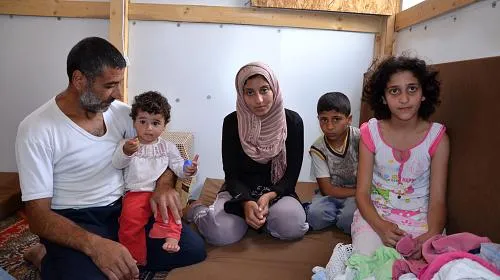CARE calls for peaceful political resolution to the conflict
The threat of international military action in Syria has caused a sudden, significant increase in the number of Syrian refugees fleeing to neighboring countries, stretching already limited humanitarian aid resources. CARE is concerned a further escalation of violence will worsen the already dire humanitarian crisis in the region and have serious consequences for millions of civilian non-combatants.
“We are already seeing a new wave of people fleeing. There have been reports of more than 15,000 Syrian refugees gathering at the Lebanese border Wednesday alone as more desperate people flee Damascus,” says CARE Middle East and North Africa Regional Director Gareth Richards. “Communities in neighboring countries are also afraid of what might happen next. We’ve heard of large number of Jordanians who have also been moving away from the border area, for example.”
“It is now more urgent than ever that political differences are set aside and a peaceful political resolution is reached through dialogue. The population of Syria is already extremely vulnerable due to the impact of the prolonged conflict. CARE is concerned at their ability to cope with any additional hardship,” says Richards.
U.N. officials say more than 44,000 refugees have poured into the Kurdistan Region of northern Iraq since August 15, when officials opened access to a footbridge from Syria. The surge is described as one of the biggest waves of refugees since the start of the conflict in 2011.
Projections also indicate that Jordan could be hosting approximately 150,000 additional Syrian refugees in the next month as U.N. and aid agencies like CARE prepare to scale up their response.
“CARE is ready to scale up our response to help the sudden influx of refugees into neighboring countries. We are already providing lifesaving services in the form of much needed emergency cash and support to more than 150,000 refugees living in urban areas of Jordan,” says Richards. “We’re working with U.N. and other aid agencies to open a new refugee camp in Azraq, where many of the new refugees are likely to go for emergency support. But the sudden increase in refugees will put a huge strain on the region. The global response to the Syria crisis is tragically underfunded, and will need additional resources urgently in order to meet the needs of the new refugees and people affected within Syria.”
CARE is working with host country governments, the U.N. and international and local organizations to help refugees and host communities in the region meet their most urgent needs.

